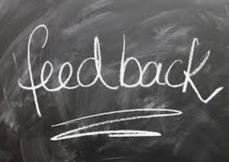|
“There is a general consensus that feedback following the completion of a task is one of the most powerful devices available for improving the way students learn,” write De Sixte et alia (2019). More precisely, the authors explain, there are three different types of feedback, each adding to the previous and having a greater potential impact on student learning:
However, feedback is only useful when learners carefully process the information provided, which depends on two related mental processes:
In their study, the researchers tested the hypothesis that students would be more likely to engage with and act upon warm elaborated feedback. To do so, the team studied 170 middle-school students (in Spain) who were asked to complete a task requiring them to select relevant text information to justify MCQ answers. In the first of three conditions, the students did not receive any feedback. In the second one, they received neutral elaborated feedback informing them of the correctness or incorrectness of their answers, including visually by showing correct answers and relevant text selections in green and incorrect answers and irrelevant text selections in red. Students then had the option of revisiting the text and checking the most relevant passages (in yellow). In the last condition, students received warm elaborated feedback meant to influence their attributional and appraisal judgments through different strategies:
To measure the impact of feedback warmth on student learning behavior, the researchers measured the amount of time devoted to processing the feedback as well as the number of decisions to revisit the text and check the model answer. Results indicated that, compared to the neutral condition, students in the warm condition
Interestingly, however, the induced positive learning behavior did not have a significant impact on student performance. Part of the reason could be that the study was mainly designed to test the immediate effect of warm feedback on learning attitude and behavior, rather than its long-term effect of performance. Thus, while warmth makes it more likely that students will pay attention to and act upon feedback, increased performance really depends on the quality of the information provided. For instance, the feedback did not include meta-cognitive strategies helping students select relevant passages in the future (e.g., questions they should ask themselves.) However, it is also possible that the “warm” feedback provided actually had both beneficial and detrimental effects. Indeed, while it can help build confidence, attributing successes to the person can also be demotivating and induce a fixed mindset as it implies a general, natural, and effortless ability. Thus, it might be more effective to praise specific skills and behaviors instead. Reference: De Sixte, Mañá, Ávila, Sánchez, “Warm elaborated feedback. Exploring its benefits on post-feedback behaviour,” Educational Psychology, December 2019.
0 Comments
Your comment will be posted after it is approved.
Leave a Reply. |
|
Proudly powered by Weebly

